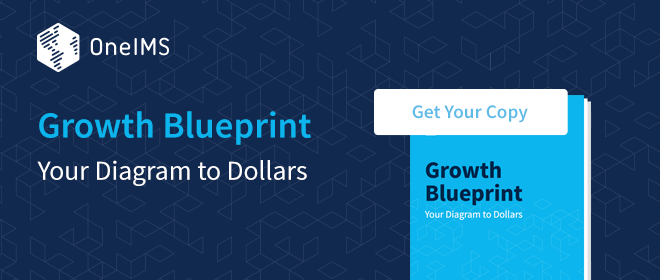Leads and prospects are two popular terms that you’ll often hear in marketing and sales, but their definitions can vary. While many businesses have their own definitions for these terms, CRMs and marketing automation systems often offer different ones, making things more confusing.
As if that wasn’t enough, many companies can’t agree on whether leads or prospects are more qualified in the sales process. Some might say that leads are qualified prospects, while others may claim that prospects come from leads. Others see them as equal.
Here are some clarifications to help you understand what actually sets these two apart from each other, including the specific definitions of leads and prospects. This will help ensure you don’t confuse the two when it comes time to initiate your marketing efforts. You’ll also be able to stay above other competitors who may not know these differences, and who fail to target the right groups with the necessary level of precision to make a successful sale.
What Are Sales Leads?
“Lead” is a potentially broad term that has varying qualification levels in the sales process.
A person first becomes a lead after performing some kind of call to action, including contact forms and quote requests. These are commonly referred to as marketing-qualified leads (MQLs) who have initiated communication with a brand. While they may express interest in a product or service, they aren’t necessarily ready to make a purchase.
Once leads have communicated regularly with a brand and it’s clear that they are a good fit for a company and what it has to offer, they are considered sales-qualified leads (SQLs) who are toward the bottom of the sales funnel. These leads are ready for contact and hopefully closing with the help of a sales representative.
When SQLs have become likely customers, they are generally labeled “prospects,” which is another source of confusion for many.
What Defines a Prospect?
There are two common definitions for prospects. Some businesses consider prospects to be contacts who haven’t yet become leads, but fit a certain buyer persona, while others define them as sales-qualified leads who are ready to close with the sales team.
The non-business definition of the word would make it appear that a prospect is farther along than a lead. According to the Merriam-Webster Dictionary, a “prospect” is “Something that can develop or become actual,” whereas a “lead” is “A slight or indirect pointing to something (as a solution or explanation).”
Comparing these definitions, we can conclude that prospects are farther along in the sales process than both MQLs and SQLs, with increased likelihood of reaching an outcome.

The Clear Difference Between Leads and Prospects in Sales
One of the principal differences between these two types of potential customers is the method of communication they use with a brand.
Sales leads are typically in an automated program of communication, receiving one-way correspondence from the marketing department with additional provided information and calls to action to push them farther along. Leads are also often contacted in large groups, unlike prospects, and calls to action will be focused on providing additional content or connecting them with additional marketing channels.
Sales prospects, on the other hand, are ready for two-way communication with a brand, either through scheduled phone calls or in-person meetings. These are the ones who are worth pursuing to close a sale through in-depth personal contact. Prospects are contacted in smaller groups or on an individual basis, and benefit from highly personalized communication through associated representatives. Calls to action for prospects will focus on keeping a conversation going, whether it’s by getting them to request a quote, schedule a call, or make some other more committed action.
Why is It Important to Know the Difference Between MQLs and SQLs?
The main reason why it’s important to distinguish between these two types of leads is to avoid confusion and misunderstanding when people talk about how they want to get more leads. Any disagreement about the definition of a lead can culminate in the wrong determination. For instance, someone may say they’re not getting enough leads, but the marketing expert they’re talking to may misinterpret this is as general marketing qualified leads who are ready to be turned into SQLs, when the person was actually getting a satisfactory amount of MQLs but wanted more sales. In this case, a solution may be implemented to increase MQLs when instead the focus should be on the sales end of the buyer’s journey.
Revamp Your Marketing Efforts By Focusing on Leads vs. Prospects or Vice-Versa
Ultimately, MQLs are ready for one-on-one interaction that leads them down the buyer’s journey, while SQLs are at the bottom of the funnel and ready to make a purchase or become clients. Understanding these key differences can help avoid the issue of miscommunication between marketers and customers in the long run. Once you know the difference between sales leads and prospects, you can better discern between them and maximize the efficiency of your sales process. You’ll subsequently have a better understanding of your processes overall and be in more control over your campaigns as a result.
While many people still don’t understand the differences between SQLs and MQLs, now that you have this knowledge, you can use it to more accurately attune your marketing campaigns based on the position of the potential buyer in the sales funnel.
Have any other questions about the difference between a lead and a prospect? Feel free to ask or suggest your own definitions in the comments below!






